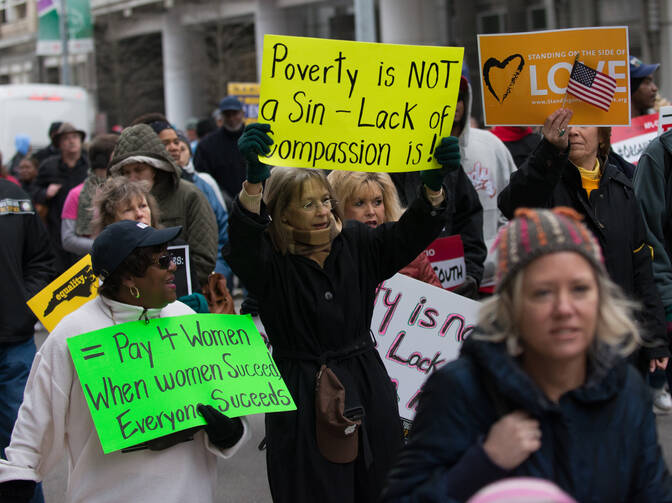On Feb. 25th, Camille Paglia, a self-identified “dissident feminist,” was interviewed for our blog. During the interview, Paglia described what she believes is wrong with American feminism today:
After the great victory won by my insurgent, pro-sex, pro-fashion wing of feminism in the 1990s, American and British feminism has amazingly collapsed backward again into whining, narcissistic victimology. As in the hoary old days of Gloria Steinem and her Stalinist cohorts, we are endlessly subjected to the hackneyed scenario of history as a toxic wasteland of vicious male oppression and gruesome female suffering.
She continued her description with a focus on the college rape crisis in U.S. universities:
College campuses are hysterically portrayed as rape extravaganzas where women are helpless fluffs with no control over their own choices and behavior. I am an equal opportunity feminist: that is, I call for the removal of all barriers to women’s advance in the professional and political realms. However, I oppose special protections for women, which I reject as demeaning and infantilizing. My principal demand (as I have been repeating for nearly 25 years) is for colleges to confine themselves to education and to cease their tyrannical surveillance of students’ social lives. If a real crime is committed, it must be reported to the police. College officials and committees have neither the expertise nor the legal right to be conducting investigations into he said/she said campus dating fiascos. Too many of today’s young feminists seem to want hovering, paternalistic authority figures to protect and soothe them, an attitude I regard as servile, reactionary and glaringly bourgeois. The world can never be made totally safe for anyone, male or female: there will always be sociopaths and psychotics impervious to social controls. I call my system “street-smart feminism”: there is no substitute for wary vigilance and personal responsibility.
Ms Paglia's claims deserve a response.
First, I agree with Paglia’s claim that university officials and committees are not, in fact, equipped to handle investigations into crimes of sexual assault. However, this is because U.S. colleges and universities are not doing enough to properly deal with rape cases and allegations. While studies have shown that the statistics surrounding college rape numbers are in fact lower than the common “1 in 5” theories, universities that do have cases of rape have, more often than not, failed to take proper action, as evidenced in cases at Florida State University and Columbia University. Universities like these, rather than a focus on helping victims, focus on the preservation of their reputations. Despite Paglia’s claim, universities should provide more effective ways to deal with rape cases on campuses, a position the editors of America have supported.
Second, as a young feminist, I also believe in equal opportunities for both women and men, for the removal of all barriers to women’s advance in the professional and political realms. I, too, see the need for “wary vigilance” in my day-to-day life. However, this vigilance is not something I experience as a human being living in a world filled with “sociopaths and psychotics impervious to social controls”; rather, this vigilance exists in my daily life because I am a woman.
I have been harassed too many times to count; pejoratives and countless abusive insults hurled my way all because I “didn’t want to smile.” I have also been followed; my personal space being threatened all because some strange man couldn’t understand why I didn’t want to talk to him, alone, at 1 am on an empty subway platform. And sadly, these are not rare occurrences.
In 2014, Stop Street Harassment, a nonprofit organization aimed at ending street harassment, conducted a survey of 2,000 women. The survey “found that 65% of all women had experienced street harassment” and among the women surveyed, “23% had been sexually touched, 20% had been followed, and 9% had been forced to do something sexual.”
A recent U.N. report has also found that despite advancements made for women in the past 20 years, violence against women continues at disturbingly high rates. According to The New York Times, “about 35 percent of women worldwide—more than one in three—said they had experienced violence in their lifetime, whether physical, sexual, or both” and “one in 10 girls under the age of 18 was forced to have sex.”
All of this also contributes to larger societal problems, like the prevalence of rape culture, defined as “a theoretical concept in which rape is pervasive and normalized due to societal attitudes about gender and society.” In 2015, this culture is more rampant than ever, evident in practices like victim blaming, in which a victim is blamed for a crime committed against her; slut shaming, described by activist Soraya Chemaly as “embarrassing, insulting or otherwise denigrating a girl or woman for her real or extrapolated sexual behavior” which can include merely dressing in what others perceive as a “sexual manner”; and social media trolling, in which a person directs an incendiary comment at a targeted person or group, for example, the threats of rape or violence often hurled at female activists on Twitter or Facebook.
For these reasons Paglia’s claims are flawed. She not only seems to undermine the reality of rape and violence and the attitudes which have led to both in the United States and worldwide, but her emphasis on “personal responsibility” further adds to the victim blaming problem. She also demonstrates a complete lack of understanding as to what American feminism truly means for young feminists in 2015; she ignores the nuances that have become a part of the movement today, for example, the experiences of women of color or immigrant women.
What “too many of today’s feminists” want is not a paternalistic, authority figure to soothe us. Rather, we want concrete changes: lowered sexual harassment and assaults rates; platforms to speak on women’s issues without being silenced, without being verbally or physically abused; and changes in attitudes and behaviors toward women, such as those that label our cause “whining” or “narcissistic.”
In honor of Women’s History Month and International Women’s Day, we, including Ms. Paglia, cannot ignore that there are, in fact, more barriers left to overcome in the fight for women’s rights.








